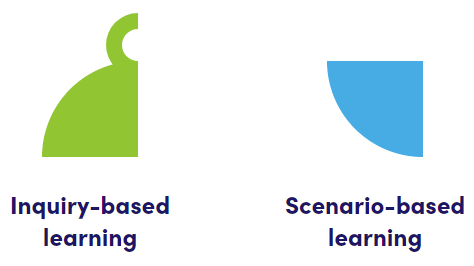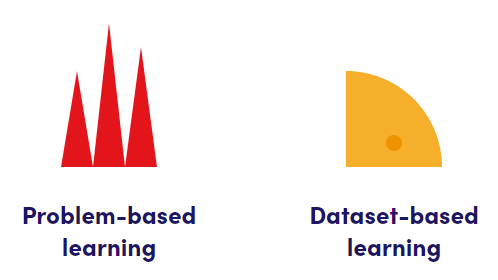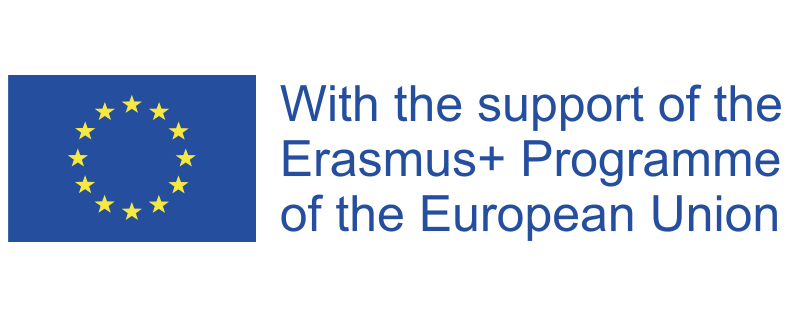eSTEM
Toolboxes for SuperFastLearning digital content development in STEM
Providing innovative toolboxes for improving the capacity of the educators in preparing e-learning materials to motivate students to learn and educators to create blended-courses.
Brief description of the project
In the last years, different pedagogical approaches have been developed by pedagogists and experts in distance learning. The most advanced approach is called “action-based learning” and refers to “all learning that is orchestrated by some activity on the part of learners” (Naidu & Bedgood, 2012). These actions may vary from real participation by learners (in building or creating something), to learners watching a video clip that is later examined, reflected on and then subject to a decision-making process. This approach can be divided into different streams and it is generally based on reversing the traditional learning process. In fact, it proposes to “start from the end”, by starting from questions, case studies, real problems, datasets and then returning to the theory behind. The four approaches referring to action-based learning that will be addressed in the project are the following: 1) inquiry-based learning, 2) problem-based learning, 3) scenario-based learning, 4) dataset-based learning.


The objectives of the project are: (i) enhancing the pedagogical digital skills of the educators, offering them a set of toolboxes for easily putting these methodologies into practice; (ii) developing innovative online tools (SuperFastLearning Machines) that through data-mining extract relevant information from which developing digital contents (one for each methodology); iii) enabling lecturers and trainers to better understand the pedagogical methodologies that are behind training approaches.
The project outputs are the following tools:
(i) SFL Machine: an IT tool adopting NLP methodologies and data-mining techniques hosted on the project website allowing to gather data and extract information using different document sources selected by the educators; (ii) theoretical background of the methodology in two versions: a) methodology in a nut-shell, for information/dissemination purposes and b) full scientific description, further researches); (iii) practical pedagogical guidelines: how to make an action-based learning lesson complying with pedagogical requirements; (iv) presentations/good practices.

Project information
Partner:
- University of Pisa, Italy (Coordinator, Lead inquiry-based)
- Bordeaux University, France (Lead problem-based)
- University of Zaragoza, Spain (Lead dataset-based)
- Koszalin University of Technology, Poland (Lead scenario-based)
- University of Bremen, Germany (Pedagogic expert)
- Erre Quadro, Italy (Technology provider for data mining and NLP)
Funding: Erasmus+, Partnerships for Digital Education Readiness
Lifetime: 01.04.2021 – 31.03.2023
Project website: http://www.superfastlearning.eu/
Contact

Till Rümenapp
Media/Higher Education Didactics
E-Mail ruemenapp@zmml.uni-bremen.de
Phone +49 (0)421 218-61475

The European Commission support for the production of this publication does not constitute endorsement of the contents, which reflects the views only of the authors, and the Commission cannot be held responsible for any use which may be made of the information contained therein.
